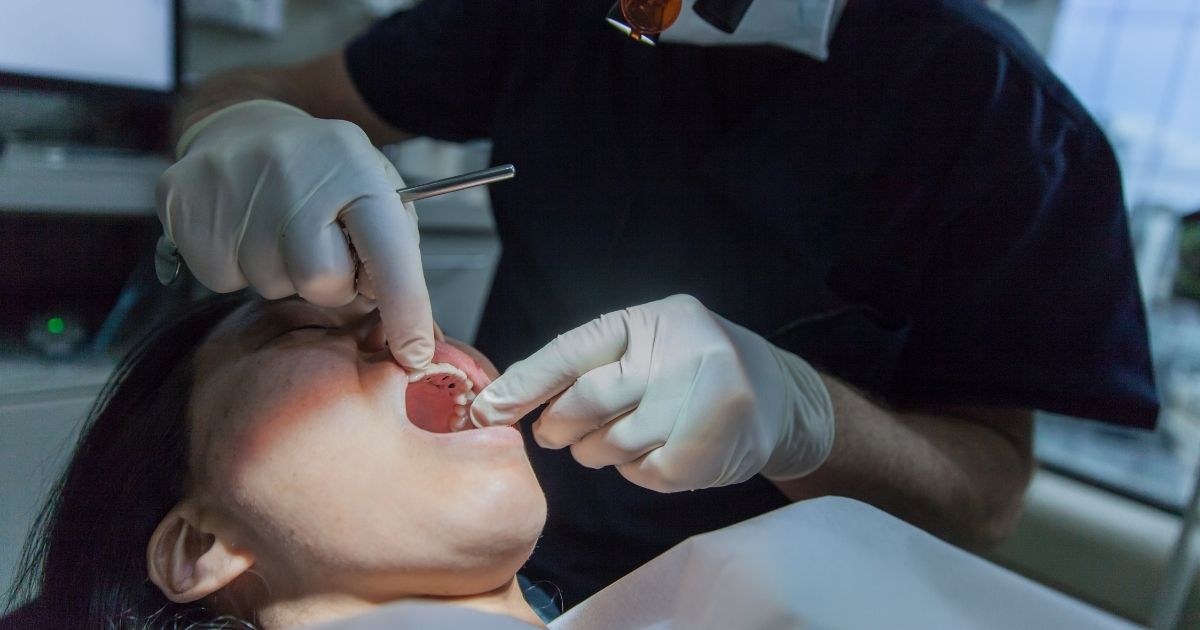Oral cancer affects over 50,000 people in the United States each year, and nearly 10,000 of these patients die. Oral cancer is one of many types of cancer grouped within head and neck cancers. It can occur anywhere related to the mouth cavity, including lips, tongue, gums, the inner cheeks, and roof or floor of the mouth. Signs and symptoms of oral cancer may include:
- A growth inside the mouth
- A sore on the lip or in the mouth that does not heal
- White or red patches on the inside of the mouth
- Difficulty swallowing
- Pain in the mouth or ear
- Loose teeth
If you are diagnosed with oral cancer, there are several treatment options, depending on the type and stage of cancer. Each patient’s treatment for oral cancer is customized to your needs and may include the following:
- Surgery: Oral cancer treatment almost always begins with surgery, depending on the type and stage of the cancer. The surgeon will remove all of the cancer in the mouth and lymph nodes, if confirmed to also have cancer cells. Your surgeon will work with a pathologist who will examine tissue to ensure all cancer has been removed. Depending on the severity and spread of cancer, some surgeries may also involve plastic surgeons to reconstruct the cavity.
- Radiation therapy: Following surgery, your doctor may start you on radiation therapy treatment, along with chemotherapy in cases with more advanced tumors. Radiation treatments vary based on the type and stage of the cancer. External beam radiation is the most common method of treating tumors without damaging surrounding healthy tissues.
- Brachytherapy: Also called external-beam radiation therapy, brachytherapy administers radiation through tiny needles, tubes, or seeds directly implanted into the tumor. This is the most common treatment for patients with small tumors and can be used in conjunction with surgery if advanced tumors are present.
- Proton therapy: This form of therapy administers high doses of radiation directly into the tumor. For some patients, proton therapy has a higher success rate with the least amount of impact to nearby organs and tissue.
- Chemotherapy: For oral cancer, chemotherapy may be administered before surgery along with radiation to shrink the cancer for greater effectiveness. Chemotherapy is also utilized to shrink inoperable tumors.
- Targeted therapy: This mode of treatment uses epidermal growth factor receptor inhibitors to interfere with cancer-causing molecules and genes. Cancer survives on molecules created by genes that cause cancer.
- Immunotherapy: Cancer cells survive, multiply, and spread by being invisible to the body’s immune system. Immunotherapy makes them visible, though this is not a standard treatment except for those with metastatic or unresectable cancers.
- Photodynamic therapy: This method of treatment involves photosensitizing drugs and light to kill cancer cells. The cells absorb the drugs, and the drugs are activated by the light.
South Jersey Oral Surgeons at Lanzi Burke Oral & Maxillofacial Surgeons Treat Patients with Oral Cancer
If you are experiencing any irregularities in or around your mouth, including pain, mouth sores, or loose teeth, you should be evaluated by an oral surgeon to determine what is causing the symptoms. The experienced South Jersey oral surgeons at Lanzi Burke Oral & Maxillofacial Surgeons will diagnose the cause of your mouth problems and develop a treatment plan. Call us today at 856-582-4222 or contact us online to make an appointment or schedule a consultation. With offices in Washington Township, Haddonfield, and Woolwich Township, New Jersey, we are dedicated to helping patients throughout South Jersey.


